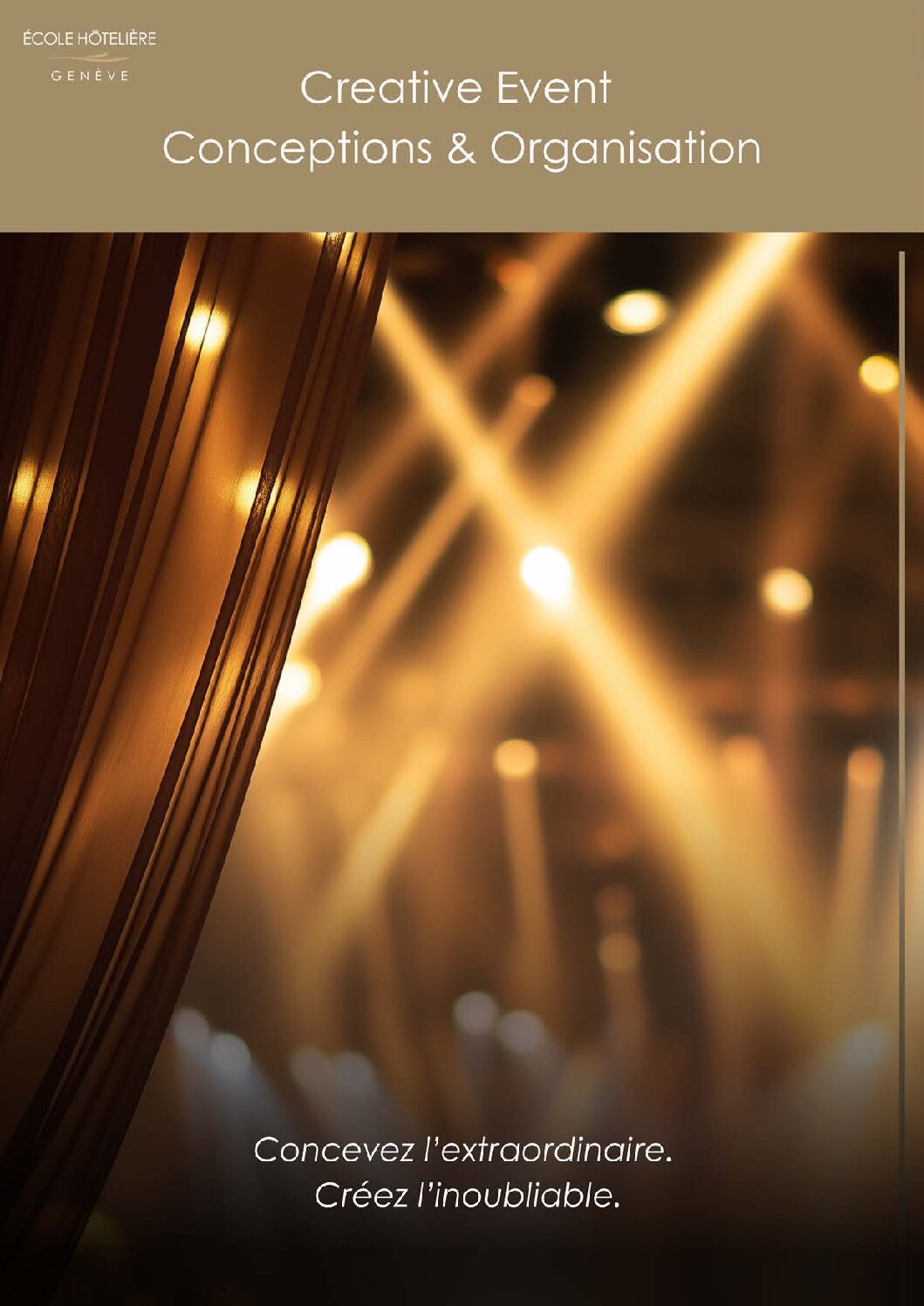Discover the dynamic world of event management with our Creative Event Conceptions and Organisation post-graduate program. Designed to keep pace with the rapid changes taking place in the industry, this specialized course trains agile professionals ready to excel in a constantly evolving field.
Design the extraordinary. Create the unforgettable
Program overview
This comprehensive program covers key skills, from planning to managing a variety of events: galas, conferences, festivals. Its rigorous curriculum integrates marketing, finance, logistics and risk management to develop expertise in creative design and operational management.
Students are trained to innovate, use cutting-edge technologies and create captivating events that meet the standards of the hospitality industry.
Combining theory and practice, the program prepares you to meet the challenges of the sector, maximize public engagement, and ensure successful, cost-effective execution.
The degree in Creative Event Conceptions and Organisation opens the door to many careers in hospitality.
Join us
Key information

Duration
1-year course and 6 months for the business project

Hybrid curriculum
Designed to adapt to your professional rhythm

1o Modules
A training path designed for your development

Federal Diploma
*Title obtained: Expert in Creative Event Conceptions and Organisation EPD ES

Career prospects
-
Event Manager:
Responsible for planning, organizing and executing events in various sectors such as corporate, public and non-profit.
-
Festival coordinator:
Specializing in the creation and management of large-scale events such as music, film and cultural festivals, ensuring their smooth running and success.
-
Event marketing specialist:
Using digital marketing skills to promote events, attract sponsors, and engage target audiences.
-
Conference Director:
Overseeing the logistics of corporate conferences, including speaker selection, participant management and coordination of activities.
-
Wedding Planner :
Designing and organizing high-end weddings, offering a personalized and memorable experience for couples and their guests.
-
What to do next :
This program offers graduates the opportunity to turn their passion for creativity and organization into a thriving career, giving them the tools to design events that are not only spectacular, but also strategically designed to meet customers' business and engagement objectives.
*Diploma in the process of being recognized
Discover the creative event design and organization curriculum modules
Final business plan
Business project: from learning to action
The Business Project acts as a veritable incubator of ideas: it enables you to apply all the skills you have acquired in response to a real or fictitious challenge in the hospitality sector. The project encourages you to innovate, to think like a strategist, and to structure concrete solutions worthy of tomorrow’s leaders.
This culminating module enables you to demonstrate your ability to apply analytical, strategic and creative skills to develop innovative solutions to complex problems.
By completing this project, you will demonstrate your ability to conduct independent research, think critically and communicate your ideas effectively, preparing you for leadership roles in the hospitality industry.
This module is the pinnacle of your learning path, consolidating your preparation to make a significant difference in your professional career. Open the door to your dreams, register now.
EHG Continuing Education
Discover our other post-graduate courses
Contact
Hotel Management School Geneva
Avenue de la Paix 12
1202 Genève
Tel: +41 22 919 24 24















